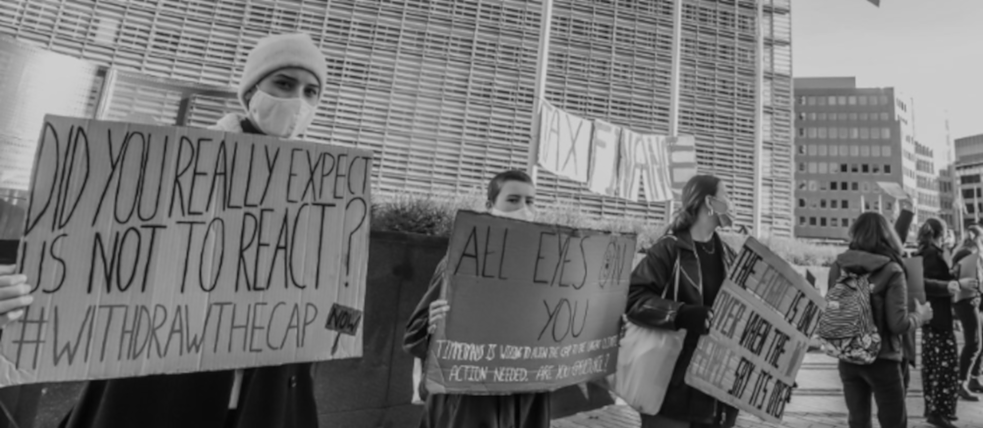The corona virus and its links to climate change
Climate activism during a pandemic

How to keep up the drive of the Belgian climate movement, and also keep it on the political agenda.
By Lola Segers
No feelings are as powerful as those generated by a climate march: you walk through the streets with thousands of other people, shout, dance, wipe away a tear of happiness now and again. At the end of last year, Youth for Climate, the Belgian climate movement, known for its success in firing up crowds and weekly marches in Brussels, was forced to make way for another, and in many people’s view more urgent, crisis: the spread of coronavirus. The climate movement has been forced to pull out all the stops to keep their cause on the political agenda and in the media, at a time when everything had to make way for the pandemic, including the climate crisis, despite the fact that in the latter case each day counts.
A sense of missing out, yet plenty of momentum
I spoke with Clara Descamps and Jada Kennedy, two friends I have been able to welcome into my life in the wake of the climate crisis. We shared the fact that we missed the street action as well as the related sense of community. Action days are what gives you the feeling of empowerment that enables people to recharge their batteries. However, we were grateful for the considerable momentum that was driving us all, as well as for the fact that we were thinking outside the box, which has been one of the positive consequences of the coronavirus crisis.Other forms of climate activism – we learned to think outside the box
The fact that all participants in the climate movement were aware of climate change and its urgency made it almost impossible to let go. However, after a while, a way was found to express our concerns in a manner suited to the times, i.e. online, but later also on the streets, in smaller groups, in accordance with social distancing.Important issues, including Europe’s Common Agricultural Policy (CAP), which uses up 30% of the EU’s total budget, were addressed. Action was taken worldwide and online to deal with the problem of the draft CAP. In Belgium, we even stood in front of the European Commission for seven consecutive weeks to attract attention to the current draft CAP and our rejection of it. We also organised various other actions, including the #FightFor1Point5 campaign, during which a small group met up in Brussels and lit hundreds of candles to celebrate the fifth anniversary of the Paris Agreement, to emphasise the importance of limiting warming to 1.5°C and the connection of this issue with human rights.
Covid-19 and the connection with climate change
Obviously, the climate movement had to give way to the Covid-19 crisis and understand its urgency. However, we were less than happy with the lack of attention to the cause of the pandemic and its connection with climate change, deforestation and loss of biodiversity. Research has shown that as the climate heats up, tropical diseases will emerge with increasing frequency in northern latitudes. Professor Kevin Arien of the Institute of Tropical Medicine in Antwerp has confirmed that the more rainforest is cut down, the greater the risk that in the future viruses will once more pass from animals to humans.A scary decline in the sense of urgency
The actions undertaken during the pandemic were met with a significant lack of interest on the part of the media and the man in the street. The demand for high-profile actions and civil disobedience has increased as never before. The perceived loss of urgency and subsequent loss of attention are cause for concern. Although the world stood still for a while, the climate crisis did not. We have lost another year in the fight against climate change. We need to regain our sense of urgency in every sector, in every policy and at every kitchen table.Once protests and mass mobilisation can resume, this sense of urgency must be reawakened if we are to succeed. Next week, Carmen and Belén’s blog will be discussing how to ensure a protest is successful.